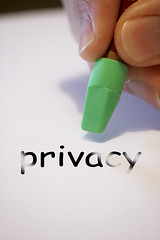Picture this:
It’s nearly 10 p.m., and you’re at home, brushing your teeth. Your iPhone starts screaming. You snap to attention, no thanks to that inherent anxiety that accompanies living as a young single woman in an urban environment. You grudgingly answer the phone, hoping to be greeted by an automated pharmacy reminder’s monotone, and not a friend needing a ride at this time of night. Instead, it’s some dude asking if you’ve heard about Prop Something for the third time and if you have a few minutes to talk. You grit your teeth and try muster up some manners.
Sound like last night? Join the club.
As you all know elections are today, November 6th. While we’re excited to be casting our ballots, we believe we can speak for nearly all in lamenting over the amount of recent “encouragement” we’ve received to cast those votes. Just this week alone, we’ve received half a dozen calls from local campaigns encouraging either a vote for a particular candidate, or a yea or nay on a particular measure (We’re looking at you, “Yes on Prop 32″-ers.) It’s a given that building support through direct contact methods like telephone calls is far from new, but we’d like to make a case for some boundaries around the use of those methods. Call us old-fashioned, but we fondly regard that old (and apparently outdated) custom of refraining from calling a lady after dark.
Receiving a phone call on a personal line while you’re settling in for the night is quite irritating in itself, but that little intrusion can also serve to remind us of just how accessible we’ve become as citizens in this connection-crazed society. Fueled by technology, we accelerate toward increasingly refined networks of social reach, but are often slow in realizing our identities and selves are becoming more public in the process. A few of us might remember the days before Facebook and cell phones, where personal information was not an instantaneous promise. Contact details were not always available at just a few strokes of the keyboard. It was a mere decade ago that your prior address record, criminal convictions, phone number, social networking profile, employment history, family members, birthday, and family tree would not have been within arm’s length of that creepy guy you’ve been avoiding in anatomy lab. It’s needless to say those days are no longer.
At this point you might be waiting for us to just cut to the chase and insist that “Big Brother is watching.” However, it should concern us all that significant social norms have produced definite effects on our collective attitude toward privacy. While most of you are rightfully concerned as is, the remainder might find further example in the recent case of the stalkerish “Girls Around Me” app (and its numerous variations, which are disturbingly popular). It is in light of these reasons that we invite ourselves to think again about those annoying handfuls of campaign literature that fill our mailboxes, those late-night cold calls, those growing piles of to-be-discarded doorknob fliers. While more or less harmless in themselves, so many requests for our attention beg us to ask ourselves about our recipient nature:
Big Brother might be watching, but could we be the ones signing the optometrist’s bills?
–R.S.
















